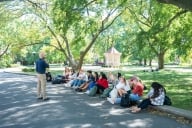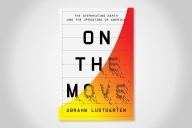You have /5 articles left.
Sign up for a free account or log in.
What might your academic discipline have to say about the university in the time of COVID-19?
What do the theories, frameworks and methods of the academic discipline in which you trained reveal about higher ed’s response to COVID-19?
How might an economist, a historian, a biologist, a psychologist or an anthropologist make sense of the changes within and across the higher ed ecosystem during a pandemic?
My academic training is that of a social demographer, with a concentration in population studies embedded within a sociology department. I can’t help but watch the higher ed response to COVID-19 through a sociological lens.
As a sociologist, I’m interested in the organizational, cultural and structural conditions that enable or impede colleges and universities from mounting an effective response to COVID-19.
I wonder about the conditions that will enable some institutions to efficiently and effectively accomplish the rapid transition from residential to remote learning. How COVID-19 will reorder the existing power relationships and status hierarchies within colleges and universities will be fascinating to observe. What will COVID-19 mean for marginalized higher ed populations such as adjunct faculty?
Will the pandemic exacerbate inequalities in student access and learner outcomes that are already deeply embedded in our existing postsecondary system? Across the higher ecosystem, will COVID-19 serve to deepen the levels of stratification between institutions of higher learning, with prospects of tuition-dependent schools diverging even further from comparatively well-off public and private institutions?
How will the sudden necessity to move to remote teaching and learning change the culture within residential colleges and universities? How does the experience of being a student who must suddenly shift from studying on campus to learning online differ by across demographic, economic and other social groups? What factors predict student success in a remote learning environment, and can those advantages be diffused to at-risk populations?
Over the next few weeks and months, I’ll be looking for themes to explain the differences in the responses of colleges and universities to COVID-19. What factors do schools that navigate this transition successfully have in common? How do we measure success?
Now is the time to develop some COVID-19-related higher ed hypotheses. We should be trying to set out some testable assertions about how we think the next six months will unfold.
There has never been a better time for the professors on our campuses, and those nonfaculty educators trained in traditional academic fields, to turn our disciplinary gaze inward.
We should be thinking of the higher ed response to COVID-19 as a line of scholarly inquiry. Or at the very least, a massive teachable moment.
What does your academic discipline tell us what to expect on our campuses in the next few months? What questions about higher ed in the time of COVID-19 would you like to see studied?








